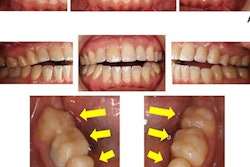
Flexible work arrangements may be the answer to meeting dental practices challenges, including increased patient demand and employee absences due to COVID-19 infections or quarantines, according to advice published on August 9 in BDJ In Practice.
Dental staff have seen the benefits of flexible work schedules during the COVID-19 pandemic and may want to continue working fewer days in the office after the crisis ends. As a result, now may be the perfect time to consider how to incorporate more flexible work opportunities in your regular dental practice, wrote Sabina Mirza, a practice management consultant at the British Dental Association in London.
"This may be a good time for you to explore any opportunities for more flexible ways of working as one of the ways to meet your ongoing dental practice requirements," Mirza wrote.
Before considering flexible work options, dental practice owners should consider their operational needs during normal work weeks, which staff members are needed on specific days, and when these arrangements will be placed into use. After answering those questions, employee contract changes may need to be made, Mirza noted.
Some employees may have contracts that contain a variation term or flexibility clause. This clause may specify steps that employers need to complete to change the employee's work schedule, like how much notice they need to be provided before adjustments are made. If work agreements don't include these terms, employers and staff members will need to agree to implement changes.
Any changes made should be documented in writing and should be reasonable and justified, wrote Mirza. Despite changes in working hours, employees should be paid the same rate and given the same holidays and benefits, but on a pro rata basis. Otherwise, employers who make adjustments that are considered worse terms and conditions may face dismissal claims from employees, according to the advice.
Employers and workers who are hesitant about changing work arrangements should consider a trial period, which should last between three and six months. That period will help both parties to determine if the arrangement works. When changes are temporary, the parties should agree to a review date, and the employee should know that normal working hours may be reinstated after the assessment, she wrote.
"There are different types of flexible working arrangements available," wrote Mirza. "You should consider flexi-time, annualized hours, compressed hours, part-time hours, or offering work on an 'as and when' required basis."




















